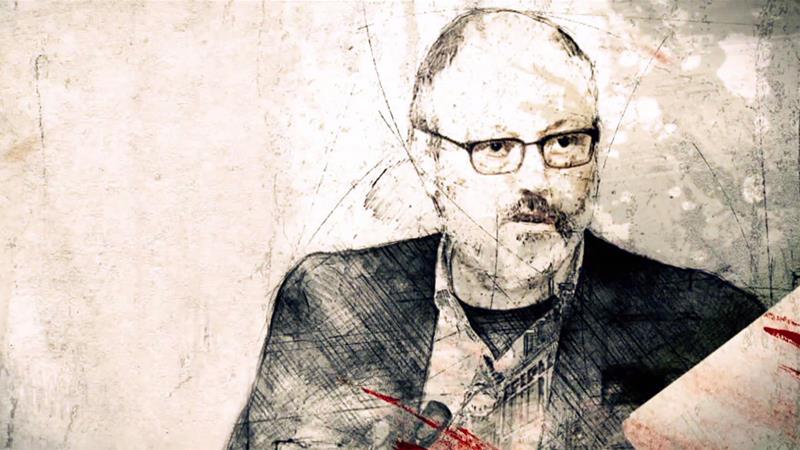Home » World News »
How can Jamal Khashoggi's murderers be held accountable?
What are the options for holding the dissident journalist’s killers accountable in the wake of the Callamard report?
More than eight months after the brutal killing of dissident Saudi journalist Jamal Khashoggi, there has still not been any accountability for his death.
Despite the recent release of a report by United Nations extrajudicial executions investigator Agnes Callamard, which places responsibility for Khashoggi’s death squarely on Saudi Arabia, international justice experts agree it is highly unlikely that his killers will face justice anytime soon.
The Callamard report finds “credible evidence meriting further investigation, by a proper authority, as to whether the threshold of criminal responsibility has been met.”
Though Saudi Arabia did not cooperate with her investigation, Callamard collected a considerable body of evidence related to Khashoggi’s killing, including 45 minutes of tape recordings made by Turkey.
The UN investigator concluded that Khashoggi was the victim of “a deliberate, premeditated execution, an extrajudicial killing for which the state of Saudi Arabia is responsible under international human rights law.”
It follows from this conclusion that the killers should face criminal accountability.
Callamard on accountability
What does the Callamard report say on accountability? With regard to the personal accountability of Saudi Crown Prince Mohammed bin Salman (MBS), it says, “[…] every expert consulted finds it inconceivable that an operation on this scale could be implemented without the Crown Prince being aware of, at a minimum, that some sort of mission of a criminal nature, directed at Mr Khashoggi, was being launched.”
The countries directly connected to Khashoggi’s death – Saudi Arabia and Turkey – are highly unlikely to undertake prosecutions that would meet international standards. When Turkey considered prosecution after the October 2 murder, Saudi Arabia immediately refused to cooperate.
Countries that undertake such prosecutions should themselves not be tainted by their poor human rights records. Callamard’s report says that Turkey’s ability to deliver justice is “seriously weakened” by its “repeated and widespread arbitrary detentions, and unfair trials of journalists and others on the basis of the exercise of their right to freedom of expression.”
Universal jurisdiction
The inability of Saudi Arabia and Turkey to undertake legitimate prosecution raises the question of whether Khashoggi killers can be prosecuted by way of universal jurisdiction, a legal mechanism that allows countries to exercise extra-territorial jurisdiction.
While countries can usually prosecute only if a crime is committed on their territory or if the perpetrator or victim are nationals of that country, extra-territorial jurisdiction allows every country in the world to prosecute international crimes that were committed outside of their territories.
The Callamard report recommends universal jurisdiction in the case of Khashoggi.
However, Kevin John Heller, professor of criminal law at the University of Amsterdam, is critical of the report’s reference to universal jurisdiction, which he says applies when war crimes or crimes against humanity are committed. He says it is unclear that a single incident of torture qualifies to be in that category.
Dov Jacobs, assistant professor at the same university, says Callamard’s use of the term “universal jurisdiction” was not sufficiently rigorous. He says the concept does not impose a duty on the countries to prosecute.
Torture convention
According to both the academics, prosecution for torture could provide an avenue for accountability. While torture is an international crime, Jacobs points out that the UN’s Torture Convention, which Saudi Arabia has ratified, does not obligate states to prosecute.
Jacobs thinks a possible avenue of accountability could be taking Saudi Arabia to the International Court of Justice (ICJ) under the doctrine of state responsibility. This was the route followed in the case of the prosecution of the deposed leader of Chad Hissene Habre, who was accused of torture.
In case of the Chadian leader, Belgium instituted proceedings before the ICJ, alleging that Senegal was in violation of its obligation to prosecute or extradite Habre under the Torture Convention.
One of the few initiatives taken by Saudi Arabia so far has been to put 11 Saudi men up for a secret trial in the Khashoggi murder case, which started in January this year. However, the Callamard report condemns the trial, saying it does not observe international fair trial standards.
A highly-discussed option in the high-profile murder case is for UN Secretary-General Antonio Guterres to initiate an inquiry into Prince Mohammed’s role in the killing. Jacobs is of the view that such an inquiry is unlikely to result in the prosecution of the killers since it will be “just another UN report”.
“The report is to be welcomed. This is a classical case where there is no dispute about the law. No one claims it is lawful to commit premeditated murder, but the dispute is about the facts. The report does not resolve that dispute, but it creates momentum for a more thorough investigation, which is the right direction to go,” Professor Christof Heyns, former UN special rapporteur on extrajudicial executions, told Al Jazeera.
Callamard further suggested symbolic responses to Khashoggi’s murder, citing the erection of a Khashoggi memorial as an example, which would symbolise press freedom. She said such a memorial could be erected in front of the Saudi consulate in Istanbul, where the journalist was killed.
Since the prospect of an imminent prosecution of Khashoggi’s killers looks slim, the international community might ultimately have to resign themselves to a statue.
Jacobs is of the view that the question of prosecution in the murder case will ultimately be obstructed not only by legal obstacles but also by a lack of political will.
Al Jazeera World
Jamal Khashoggi: The Silencing of a Journalist
Source: Read Full Article



